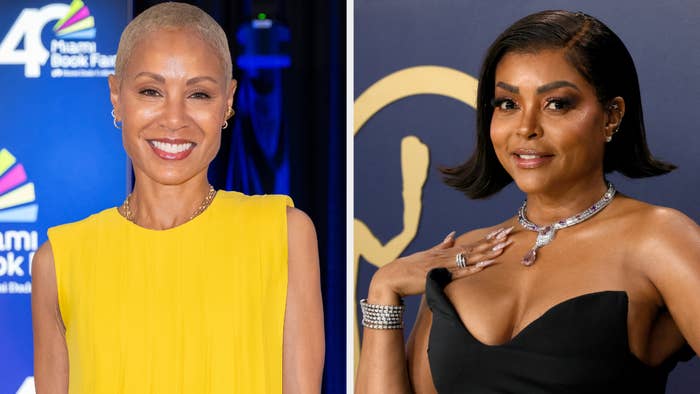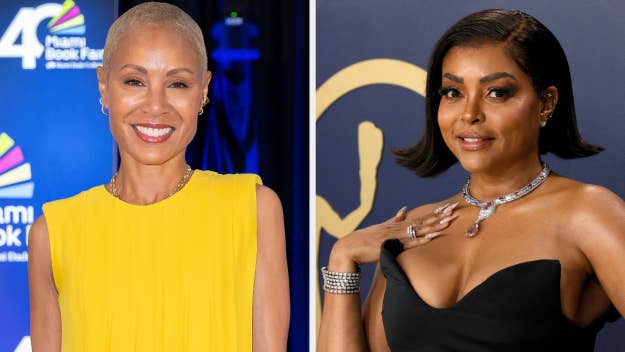
Jada Pinkett Smith applauded Taraji P. Henson for weighing in on pay disparity in Hollywood.
Henson, 53, who played Shug Avery in 2023's musical adaptation of The Color Purple, made headlines during the film’s promo trail when talking about quitting the entertainment industry over unfair pay compared to her contemporaries.
"I'm just tired of working so hard, being gracious at what I do, getting paid a fraction of the cost," Henson told Gayle King during a SiriusXM interview. “I’m tired of hearing my sisters say the same thing over and over. You get tired."
Henson broke down the financials at the time. The actress claimed that a $10 million dollar payday for a role doesn’t stretch very far after taxes and paying a team of people.
"I'm only human and it seems every time I do something and I break another glass ceiling, when it's time to renegotiate, I'm at the bottom again like I never did what I just did, and I'm tired," she added. "It wears on you. Because what does that mean? What is that telling you?"
On a new episode of NPR’s It’s Been a Minute podcast, Smith applauded Henson’s courage to speak up.
“My heart broke for Taraji, and I was also happy [to see] how courageous she was to speak about it in the way that she did,” said Smith, per the Hollywood Reporter. “One of the things with Taraji is that she is the breadwinner of her family. Her pressures would be different than mine. I have to put that out front, because if it’s time to walk away, that’s not always the solution. Because what people don’t understand with us as Black entertainers, we carry a lot of people with us.”
“People would literally say, ‘Well, you don’t need it. You’re married to Will [Smith],'” Smith added, explaining that this line of thinking played a role in her moving to the production side of Hollywood to “remedy” the issue. “It’s not to say that I won’t get in front of the camera, but what it takes for me to get in front of the camera, it’s more. Just in regards to the kind of roles that I want to play or that interest me. And I’m thinking about directing.”
Taraji’s frustrations have been met with mixed responses. Gabrielle Union jumped on the “Of Course” trend on TikTok to denounce Hollywood’s unfair treatment of Black actresses. Keke Palmer and Mo’Nique also chimed in to share their support.
50 Cent offered to help Henson out, citing the undisclosed salary he reportedly forced Starz to pay Mary J. Blige to appear on Power Book II: Ghost, which he executive produces.
However, Vivica A. Fox, Henson’s former Empire co-star, told TMZ in January that she couldn’t relate to Taraji’s experience, saying, “But to get your peace out is important. I totally understand that and I love my girls for looking out for each other. But I'm good."
Fox later clarified her comments during an interview with Brown Girl Grinding published earlier this month, telling host Loren LaRosa that what’s important is “getting the work done.”
“Listen, every set’s not gonna be pleasurable. You gon’ get there and there’s gonna be some surprises. The trailer ain’t right or something’s not right. You push through because what’s more important to myself is the work and getting the work done,” said Fox.
“As a producer, you gotta make your days—you got 12 hours,” she continued. “You don’t make your day, you’re not going to be working that much anymore. So you learn to push through. So when I said ‘I’m good,’ I’m a worker bee. I have a tendency to not complain, that I do the work. I do the work, I complain afterward, I pick up the phone—if there’s a problem, I call my people. That’s what they’re there for. That’s how they’re supposed to earn their money.”

